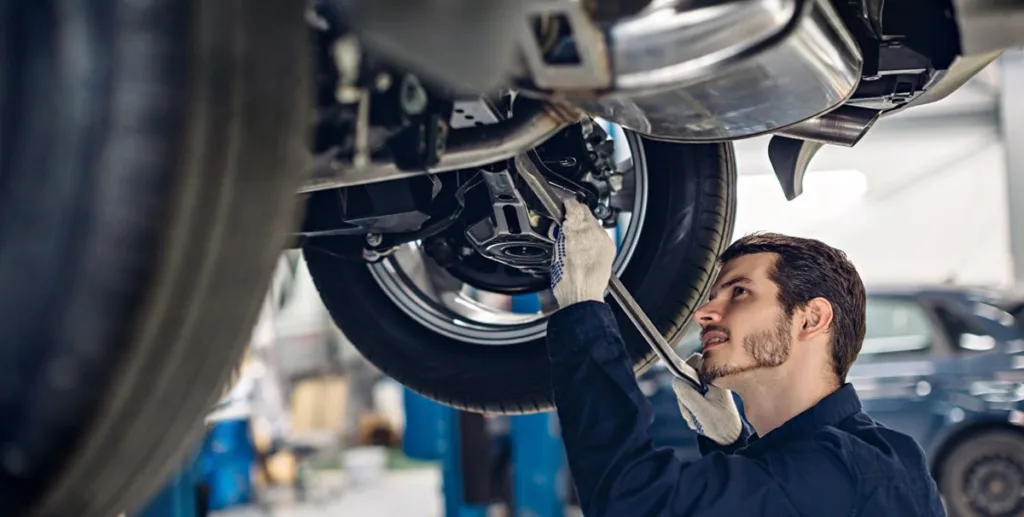All Categories
Featured

[/image]
Routine engine tune-ups are essential for preserving your vehicle's performance, improving gas effectiveness, and prolonging its life expectancy. Whether you're a seasoned auto proprietor or a newbie, recognizing the essential facets of an engine tune-up can aid you keep your automobile running efficiently for many years. Below are some necessary pointers to lead you through the process.
- Modification the Glow Plugs. Ignition system are small but mighty components that play a vital duty in sparking the fuel-air combination in your engine. Over time, they can wear out or end up being fouled, resulting in inadequate engine performance, decreased gas performance, and hard begins.
During a tune-up, evaluate your trigger plugs for wear and change them as needed. For the majority of vehicles, trigger plugs ought to be changed every 30,000 to 100,000 miles, depending upon the kind and material. Fresh ignition system ensure effective burning and smoother engine procedure.
- Evaluate and Change the Air Filter. The air filter is your engine's initial line of protection against dust, particles, and other impurities. A clogged up or unclean air filter can limit airflow, creating your engine to function more difficult and consume more gas.
Inspect your air filter throughout a tune-up and change it if it's filthy or previous its recommended service interval. A tidy air filter boosts engine performance and enhances gas economy.
- Inspect the Gas System. With time, your fuel system can accumulate dirt and carbon deposits, lowering engine efficiency and fuel performance. Cleaning the gas injectors and fuel lines throughout a tune-up aids preserve appropriate gas distribution and burning.
You can make use of a gas system cleaner or have a specialist mechanic do a much more complete cleaning. This action is especially beneficial for older lorries or cars and trucks often driven in stop-and-go web traffic.
- Examine the Belts and Hoses. Belts and hoses are crucial for various engine features, such as running the generator, water pump, and air conditioning. During a tune-up, look for splits, fraying, or indications of endure these elements.
Change any type of damaged belts and pipes to protect against possible failures. A busted belt or leaking hose pipe can cause engine overheating or loss of power, so dealing with these issues quickly is vital.
- Replace the Engine Oil and Oil Filter. Engine oil is vital for oiling moving parts, minimizing rubbing, and regulating engine temperature level. In time, oil comes to be contaminated and loses its performance.
As component of a tune-up, replace the engine oil and oil filter. Use the kind of oil recommended by your car's manufacturer and stick to the recommended adjustment periods. Tidy oil maintains your engine running smoothly and protects against early wear.
- Check the Battery and Billing System. A healthy and balanced battery is important for starting your vehicle and powering its electrical systems. Throughout a tune-up, examine the battery's voltage and evaluate the terminals for rust. Tidy the terminals if required and make certain a protected link.
Additionally, test the generator and billing system to ensure your battery continues to be charged during procedure. If your battery is weak or old, take into consideration changing it to prevent unanticipated breakdowns.
- Flush and Refill the Coolant. The cooling system controls your engine's temperature, preventing it from overheating. Old or contaminated coolant can shed its performance, causing possible engine damage.
During a tune-up, flush the old coolant and change it with a fresh mixture. Also, check the radiator, thermostat, and hoses for leaks or damages. Keeping the cooling system in good condition ensures your engine runs at the ideal temperature.

- Address Warning Lights and Unusual Signs. Modern cars are outfitted with analysis systems that inform you to possible concerns via control panel caution lights. If your check engine light or any kind of other warning indicators get on, resolve them throughout your tune-up.
Additionally, pay focus to uncommon symptoms such as odd sounds, harsh idling, or decreased gas performance. A professional technician can identify and solve these issues during the tune-up process.
- Don't Forget the Exhaust System. Your vehicle's exhaust system gets rid of dangerous gases from the engine and ensures proper emissions. Evaluate the exhaust system for leaks, corrosion, or damage during a tune-up. A damaged exhaust system can affect engine efficiency and lead to ecological and safety issues.
- Usage High-Quality Parts and Fluids. When replacing parts or complementing liquids during a tune-up, always go with top quality items that fulfill your vehicle's requirements. Utilizing substandard components or wrong liquids can adversely influence your engine's performance and durability.
Conclusion: Routine Tune-Ups Are Key to Engine Health And Wellness. Putting in the time to tune up your engine guarantees it runs effectively, conserves gas, and decreases the threat of failures. Whether you execute these tasks yourself or rely upon a trusted auto mechanic, routine tune-ups are a financial investment in your automobile's dependability and long life. Follow these tips, and you'll enjoy a smoother, a lot more reliable ride for several years ahead.
Latest Posts
Check Out the Greatest Auto Repair Deals in Montclare, Chicago
Recognizing When Your Car Needs Professional Car Repair at Montclare Auto Repair
Experience Your Financial Partner at WyHy – Top Benefits for Your Financial Goals
More
Latest Posts
Check Out the Greatest Auto Repair Deals in Montclare, Chicago
Recognizing When Your Car Needs Professional Car Repair at Montclare Auto Repair
Experience Your Financial Partner at WyHy – Top Benefits for Your Financial Goals